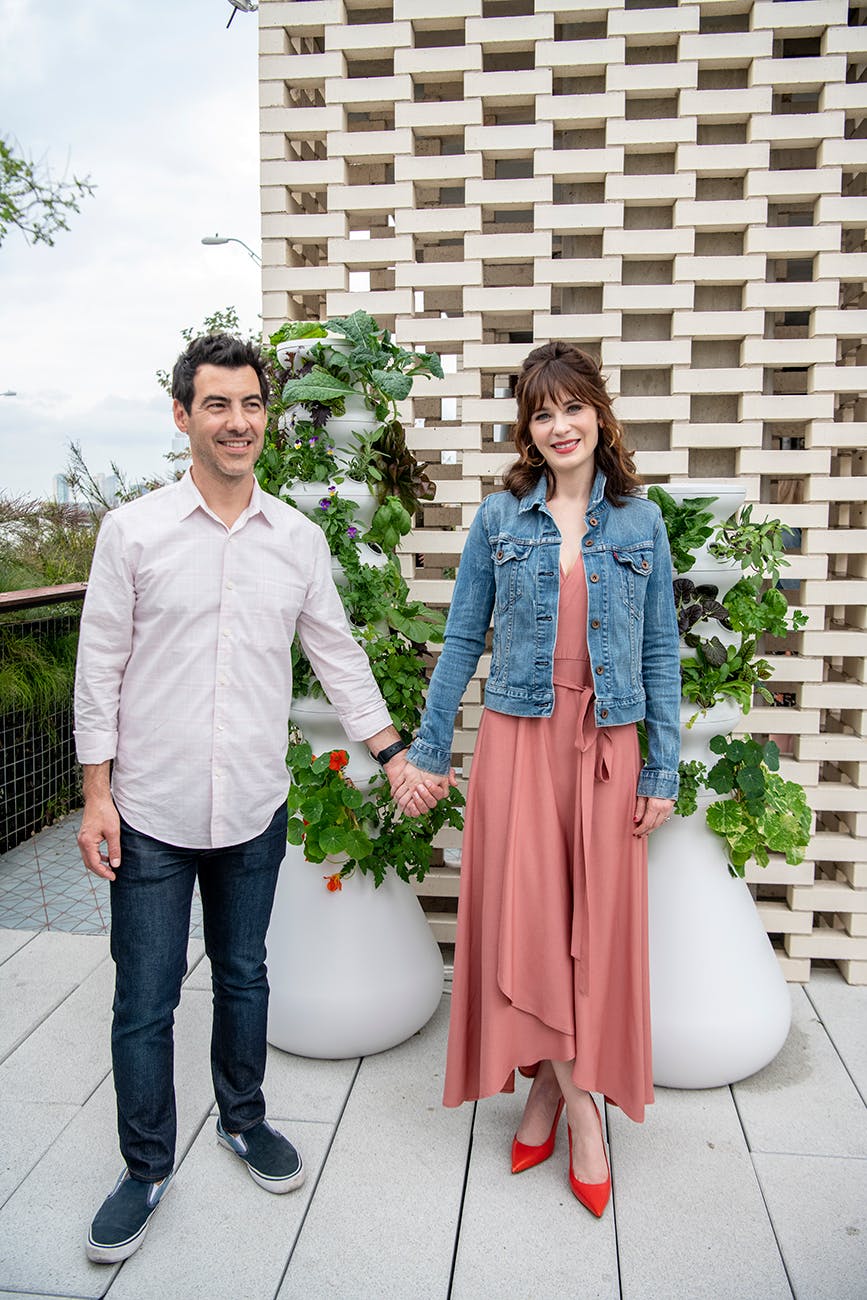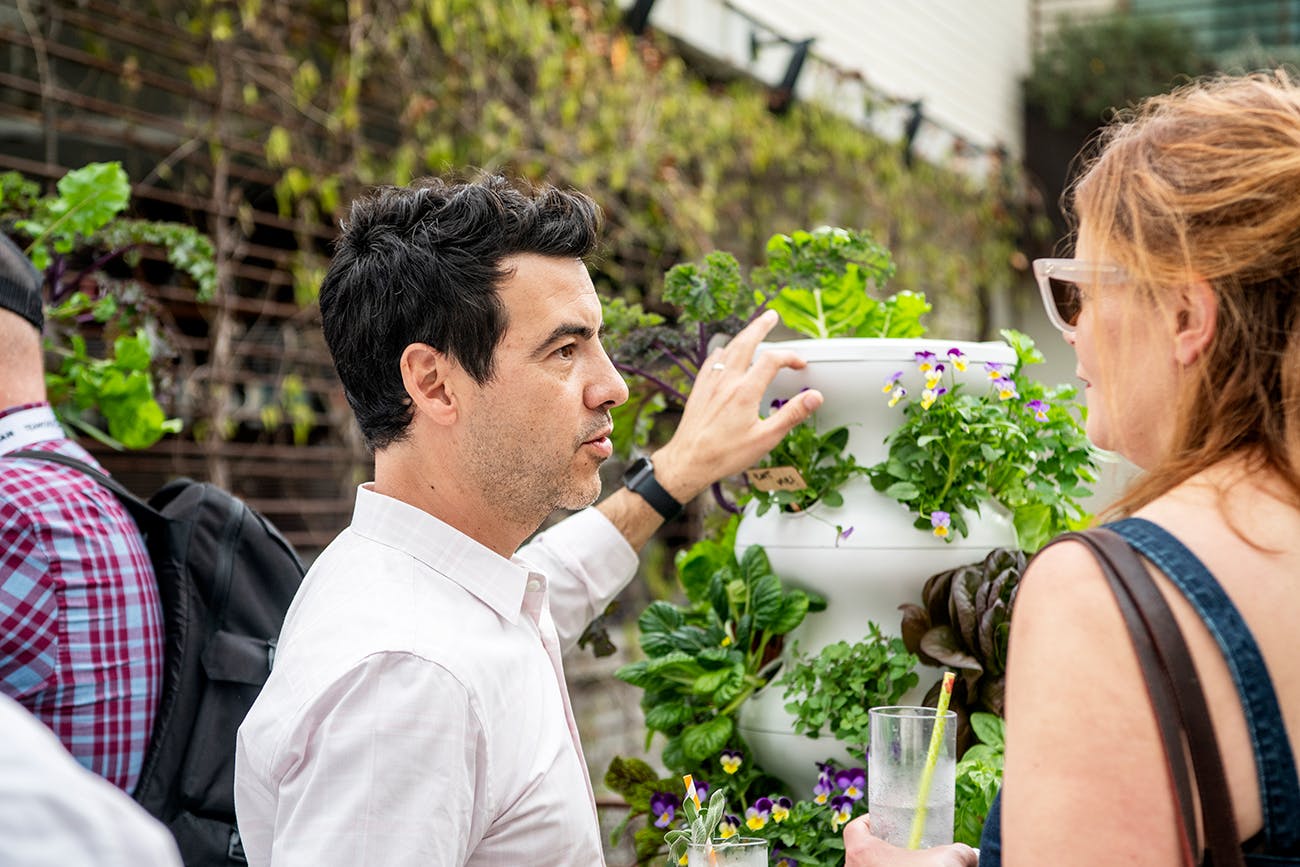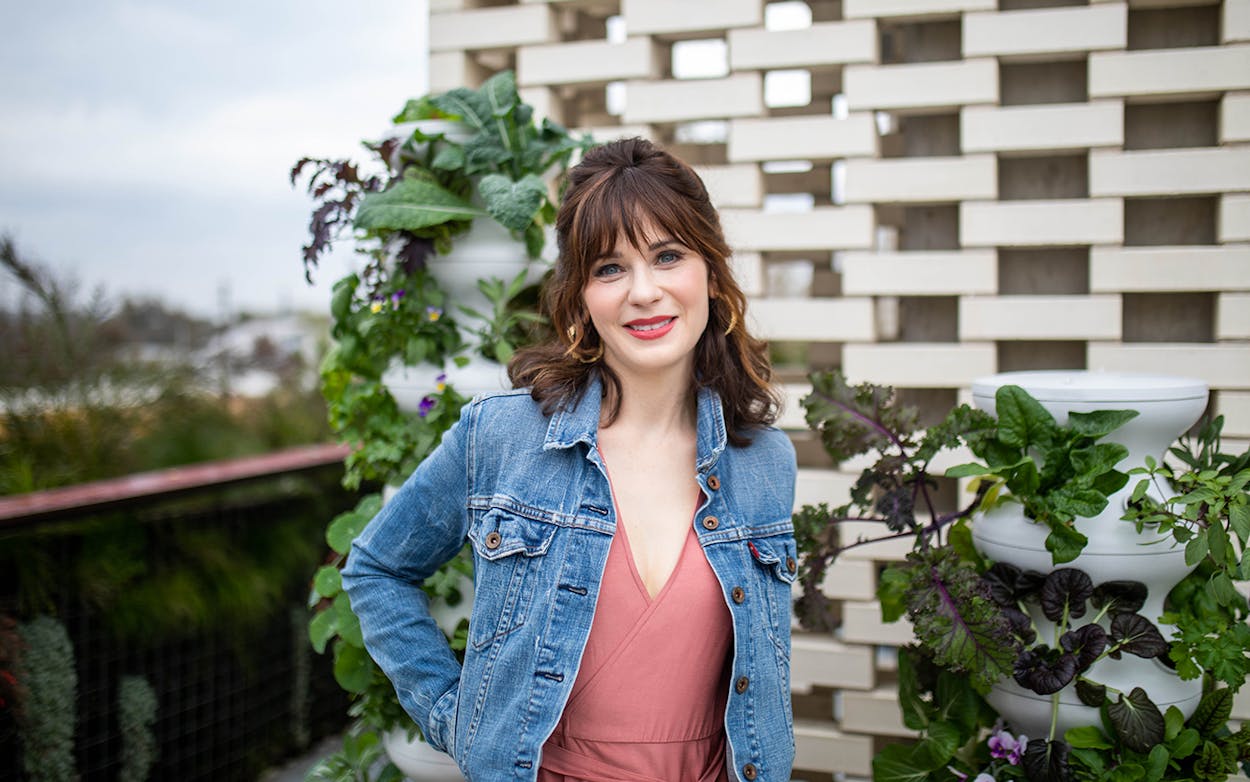Growing plants in Texas involves a steep learning curve. Even if you grew up seeding and weeding at the side of a knowledgable green thumb, there’s a lot of collective wisdom to internalize before you’re harvesting your own vegetables. Our warmer winters mean an entirely different planting schedule than is suggested on the backs of seed packets. Scorching hot summers require vigilant water management. Plus, the bugs more than live up to that old cliche that everything is bigger in our state.
Lettuce Grow, a startup from Emmy- and Grammy-nominated actor and singer Zooey Deschanel (known for New Girl, 500 Days of Summer, and the musical duo She & Him) and her husband, entrepreneur Jacob Pechenik, is an attempt to make that curve a little less steep. On March 10, 2019, at the South Congress Hotel, they hosted a launch party for the Austin-based company, which will begin shipping to its first subscribers soon.
The couple, who have two young children, split their time between Austin and Los Angeles and are familiar with the peculiar challenges of growing veggies here. “In a place like Texas, you have these [weather] extremes,” Pechenik says. With their backyard hydroponic system and accompanying subscription service, he claims, they want to enable people to “grow twenty percent of their food.” It’s an ambitious goal, but Lettuce Grow automates many aspects of gardening, effectively giving its customers a shortcut to homegrown produce. “You might not have a green thumb,” Deschanel says. “We want to do all the extra work that might stop people from growing a garden at their house.”
Here’s how it works: When you sign up, Lettuce Grow ships you one of their “farms.” Made from ocean-bound plastic (plastic that wouldn’t have been recycled otherwise), the farms are vertical hydroponic gardening systems. Hydroponics is a method of growing plants without soil. You set the grower in a sunlit area, fill it with nutrient-enriched water, plug it in, and then add the seedlings that Lettuce Grow ships you monthly. That’s it, more or less.

The plant varieties have been selected to work well based on your geographic location, and the types of plants Texans can expect to receive through the subscription service will be tailored to the seasons and the weather. Lettuce Grow works with local farms to grow the seedlings. In Austin that farm is Agua Dulce, owned by Deschanel and Pechenik’s Farm Project. Varieties are tested and chosen for flavor, yield, insect resistance, climate compatibility, and more.
The goal is to get your Lettuce Grow farm to a point where it’s producing enough vegetables that you can harvest some every day. That way, says Pechenik, “you can start to build a lifestyle around eating at home, cooking at home.” The company has an accompanying app that advises when to harvest; advises when to clean, add nutrients, or add water to the Farm; and provides recipes and tips for eating your bounty. You can even send in photos of your plants if they seem to be struggling, and they’ll offer advice—or change the variety of plants in your subscription box to some better suited to your space.
All of this hand-holding comes at a price: Farms range from $399 to $469 depending on size, and the accompanying subscriptions cost between $49 and $69 monthly. But Lettuce Grow claims that, at peak season, the smallest farm produces $78 worth of produce a month—so if you stick with it, you’ll eventually save money. For those who want to garden and can afford the system, it removes plenty of hurdles to starting a garden. (Lettuce Grow also donates one farm and accompanying membership to “a school or community-based organization” for every ten subscriptions it sells.)

“I am drinking the Kool-Aid,” says Stephanie Scherzer of Austin’s Rain Lily Farm, who has worked closely with Lettuce Grow in selecting varietals and growing seedlings. She admires the system for being accessible to children and the elderly as well as its performance. Scherzer says she’s been able to grow watermelon, eggplant, and peppers in her prototype farm and that the cooling properties of the hydroponics system extended the Texas growing season for crops like thyme, watercress, and kale. (For now, the service sends members mostly greens and herbs, but greater variety is planned.)
Deschanel says she’s enthusiastic about Lettuce Grow because “it’s really such an advantage to grow your own food.” She notes that freshly picked vegetables retain the most nutrients and that picking only as much food as you need to eat can reduce food waste. She adds that her daughter loves picking the vegetables, and the Lettuce Grow system provides a starting point to get kids involved in gardening. “It’s a great way to explore the food you’re eating and explore healthier options too.”
Lettuce Grow is taking preorders for its first round of subscriptions. Farms begin shipping in three to five weeks, and it’s available nationwide.







